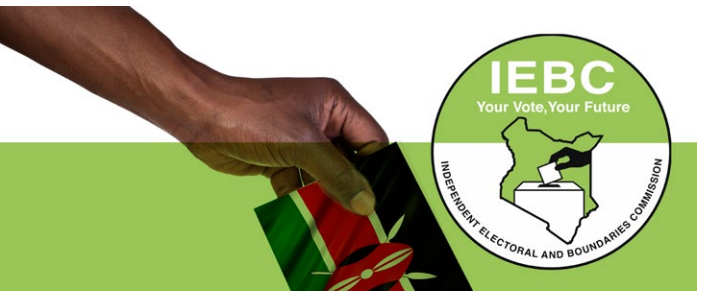IEBC should avoid ghosts of the past to win voters and deliver credible elections

In exactly 179 days, Kenyans will be heading to the polls in what is shaping out to be a hotly contested General Election. The Independent Electoral and Boundaries Commission (IEBC) is tasked with conducting and supervising the election. History shows that various challenges have marred past elections, with the Commission generally in the eye of the storm. Is IEBC ready for the August 9 General Election, or will the ghost of its past mistakes haunt it this time around?
Other than its mandate of supervising the elections, the IEBC is also tasked, among others, with ensuring the continuous registration of voters, regulation of political parties’ processes, registration of candidates for elections, and voter education. All these functions are critical in ensuring a free, fair and credible election.
To determine what worked, what did not work as expected and what could have been done better, the Commission carried out an internal critical assessment of its performance in the conduct of the 2017 General Election and Fresh Presidential Election. The 2017 Post Election Evaluation Report contains some interesting findings.
What did not work previously? Key lessons going into August 9
IEBC has experienced challenges in the discharge of its mandate due to last-minute changes to the elections laws. In 2017, some legal amendments to the Elections Act, 2011, caused a shift in the Commission’s operations by requiring the use of technology without appropriate safeguards to the users and the Commission. The late changes went against Kriegler’s recommendations that required election-related laws be enacted two years before the election.
Despite this history lesson and with about six months to the General Election, the President recently assented to the Political Parties (Amendment) Act, 2021, and Parliament is currently considering the controversial Elections (Amendment) Bill, 2022. The Bill, ironically sponsored by the IEBC, seeks to have alternative methods of relaying poll results. So far, the proposed amendments have caused an uproar with criticism levelled against the Bill by the opposing political camps. The IEBC, however, maintains that the Bill proposes a complementary mechanism for result transmission to address instances where transmission of results is not possible owing to the lack of 3G network, which is the minimum standard required for transmission of results.
Delays have previously been experienced in the procurement and supply of General Election materials. During the 2017 polls, some material was being delivered to the Commission as late as August 4, 2017, despite a delivery deadline of April 30. Kenyans are likely to witness a repeat of this delay in light of the ongoing tender rows, particularly concerning the supply of the Kenya Integrated Election Management System (KIEMS) kits. The system identifies voters biometrically and seeks to curb impersonation during the voting exercise, making sure only those that had been registered are allowed to cast their votes. Currently, the tender for the KIEMS kits has been thrown in disarray, with the High Court expected to rule on a petition challenging the award of the tender to a Dutch firm. The late delivery of election materials or failure to supply is likely to affect the election timelines.
The adequacy of voter education looms large over the 2022 General Election. In 2017, civil society groups raised a hue and cry, decrying the lack of adequate voter education and efforts towards the same by IEBC. There were concerns that most Kenyans were not educated on the qualities of who to elect as leaders in the electable positions. In addition, low voter registration turnout was attributed to poor civic and voter education. Could the low voter registration in the current National Enhanced Continuous Voter Registration (ECVR) exercise point to poor voter education? The just-concluded Phase 2 of the ECVR netted 1,031,645 new voters against a target of 4.5 million.
What will it take?
With only six months to the General Election, IEBC needs to assess its preparedness for the August 9 polls critically. Any identified gaps or lapses need to be remedied as soon as possible. The 2017 Post Election Evaluation Report sets out several recommendations to address the challenges experienced during the 2017 polls. Given the likelihood of a repeat of similar challenges in this year’s elections, the Commission should put in place adequate measures that consider the recommendations in its evaluation report. Further, IEBC should ramp up its voter education drive to properly equip voters and address the elephant in the room – voter hesitancy.

